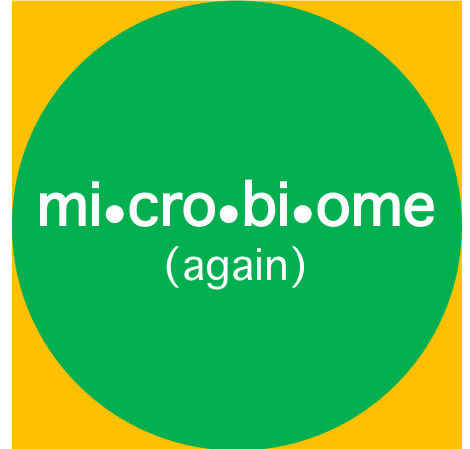Is the microbiome the key to health?
 Interest in the microbiome – those trillions of bugs (bacteria and other microorganisms) in your gut – is increasing and according to an article in the NY Times, drug companies are trying to get in on the action.
Interest in the microbiome – those trillions of bugs (bacteria and other microorganisms) in your gut – is increasing and according to an article in the NY Times, drug companies are trying to get in on the action.
As I’ve written before, these bugs may be important in the development of chronic disease leading to the possibility that you can “transplant” healthier bugs into someone with a disease. In fact, transferring the feces (poop) from one person to another has been shown to cure cases of Clostridioides difficile (C. diff) colitis (a life threatening infection of the gut caused by overuse of antibiotics). This is called fecal microbiota transplantation (FMT). Studies are ongoing to see if FMT can be used to treat inflammatory bowel disease (IBD), irritable bowel syndrome (IBS) and other chronic conditions. But there are a limited number of places doing FMT so people are doing their own transplants by harvesting the feces of a friend or family member and using a home blender (I’ll spare you any additional details but the DIY instructions are readily available online).
So, FMT is very promising as a treatment for chronic disease but there are lots of risks – most importantly, transfer of infection. So FMT needs to be regulated but, should this be done by the Food and Drug Administration (FDA) or should FMT be considered more like an organ transplant (similar to a kidney transplant)?
Drug companies want to be involved in FMT and the microbiome for a variety of reasons:
- The microbiome may cause disease. Studies in mice have shown that you can transfer the feces from a mouse with diabetes into a healthy mouse and cause the healthy mouse to get diabetes. Perhaps, altering the microbiome will become more important than taking drugs in people with diabetes and other chronic conditions.
- A healthy microbiome may help prevent disease. In another article in the NY Times, Dr. Eric Topol, a fan of artificial intelligence in medicine, did a 2-week self-experiment to identify the healthiest foods for him. He tracked all the food he ate and measured his sleep, exercise, blood glucose levels, etc. using sensors attached to his body. He also had his feces analyzed to understand his gut microbiome. Then all the data was put together to create a diet specifically for him. Perhaps some day we will each have a personalized diet that helps us stay healthy and avoid disease.
- The benefits of FMT may be achievable through a pill. In a study published in the Journal of the American Medical Association researchers took the feces from healthy people and put the bugs into a pill. The pill worked to treat patients with C. diff colitis.
- The bugs in other parts of the body may also keep you healthy. Babies who are born by C-section seem to be at greater risk of developing allergies, asthma, autism and other diseases. Researchers think this may be because they are not exposed to their mother’s bacteria in the birth canal. What if you could replace the bacteria they didn’t get in the birth canal with a pill, cream or injection?
Whether or not drug companies are able to get control of FMT, expect to hear more about the microbiome in the coming years.
One thought on “Is the microbiome the key to health?”